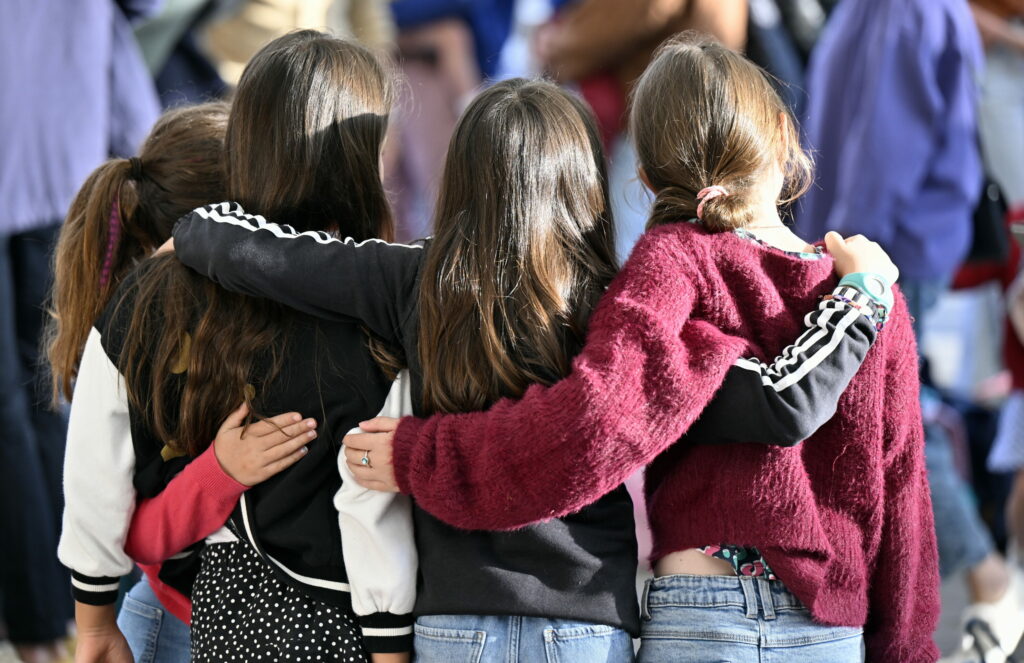From celebrating the final 100 days of secondary school to venturing to the seaside, forests and abroad to "broaden pupils' minds", many people schooled in Belgium have fond memories of their younger years outside the classroom.
Beyond Belgium's complex and fragmented education system, life at school is not all about getting good grades. In all language communities, activities, trips and events are organised, both on school premises and further afield. For those who have long left their school desks behind, these cherished memories are the ones that remain.
The Brussels Times' staff share their fond recollections of life at school in Belgium.
Carnival
Carnival season in Belgium can begin anytime from the start of February to well into March. This festive period, beginning six weeks before Easter Sunday, is celebrated across the country and ventures into school life as well.
Known as Carnaval in both Dutch and French, this event is a popular excuse for elementary and primary school pupils to dress up as their favourite animal, superhero, or even food item. One of The Brussels Times' staff members once proudly came to school dressed as a frog.
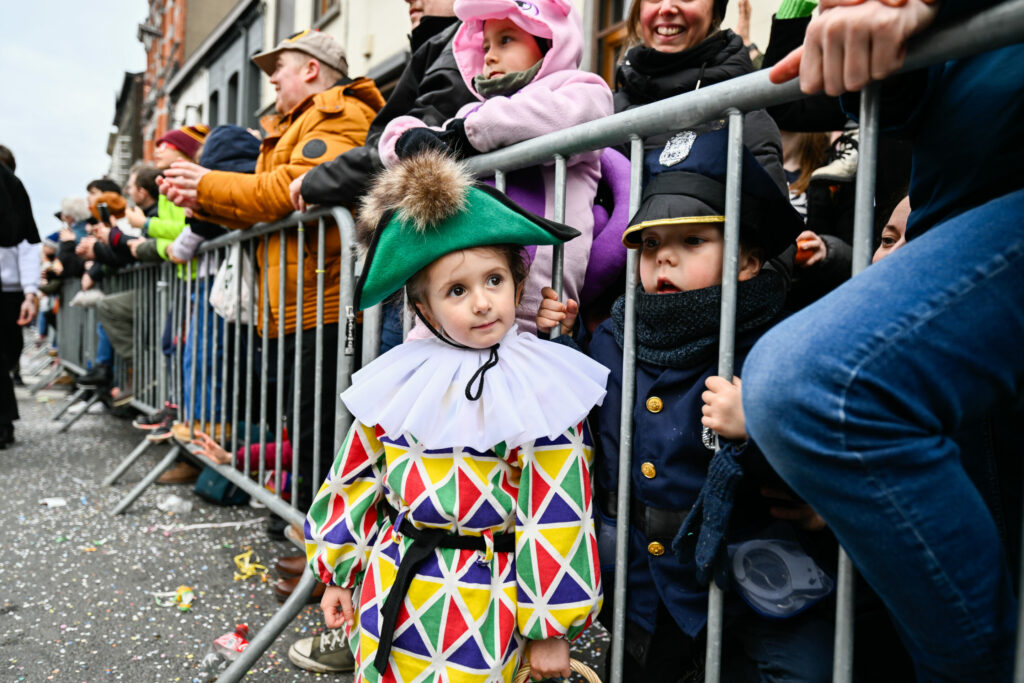
Children dressed up for Carnival. Credit: Belga/Eric Lalmand
There are no boring lessons on Carnival Day – only hours of fun. Some schools have their students parade through the school to blaring music, others have them learn and perform elaborate songs or choreography. The luckiest students indulge in a feast of sweets and other treats.
Sea and forest classes
Sea and/or forest classes (called zeeklassen and bosklassen in Dutch, and classe verte and classe de mer in French) mark the first time primary schoolers are away from their parents for longer than one or two days.
Usually two separate three-day trips in the last years of primary school, children go to the Belgian coast and the Ardennes to learn all about the area's fauna and flora through outdoor classes, assignments and field trips.
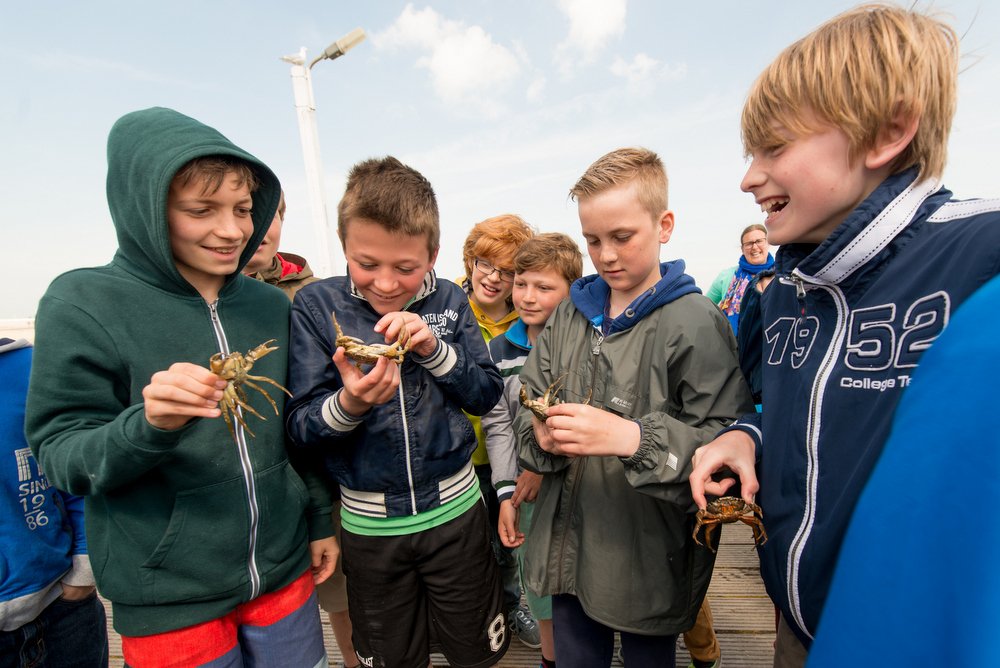
Children on sea classes in Ostend. Credit: Schoolklassen
In addition to learning about nature, children enjoy the opportunity to eat, play and live together for several days, enabling them to forge strong friendships that last long beyond their school careers.
While some primary schools offer snow classes (sneeuwklassen in Dutch and classe de neige in French), some reporters at The Brussels Times had to wait until secondary school to go on a school ski trip.
Final 100 days
Nearing the end of secondary school is an exciting prospect for pupils across the world. In Belgium, this occasion is marked by an event around 100 days (or 50 days in some places) before the final day of school.
In most Dutch-speaking schools, the tradition is referred to as Honderd Dagen School ('Hundred Days School'), Chrysostomos in the provinces of Limburg, Antwerp and Flemish Brabant or Hoedjesdag ('Hat Day') at the coast. In French-speaking schools, the long-awaited day is called Les 100 Jours des Rhétos ('The 100 Days of Seniors'). These are all names for the scholastic custom in which final-year students celebrate the fact that they are coming to the end of their time in secondary school.
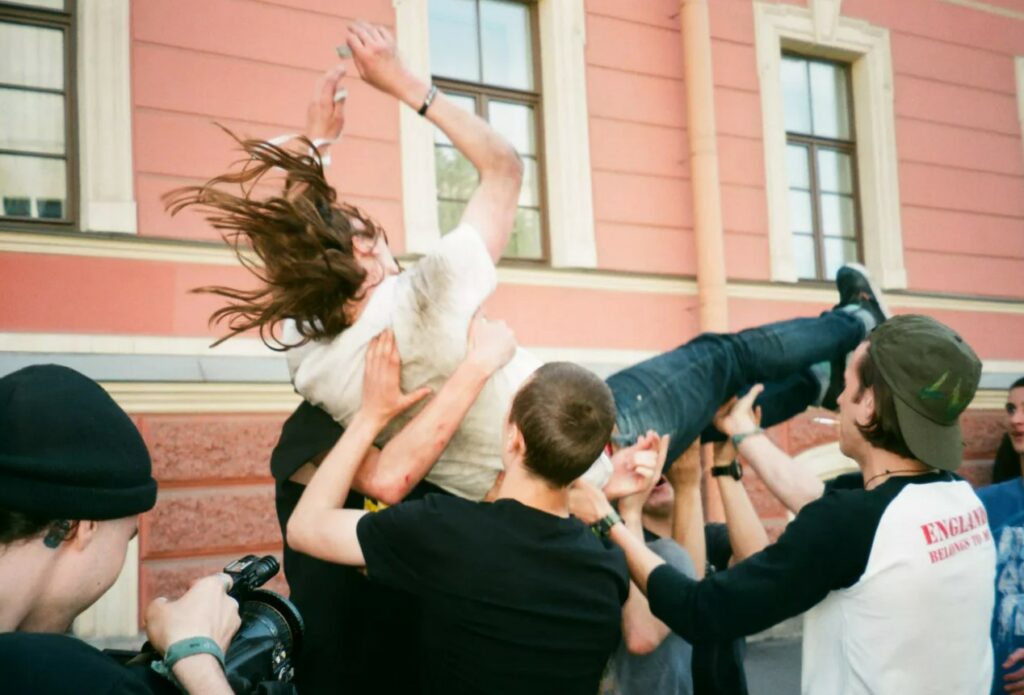
During "Hundred Days School," last-year pupils often play tricks on each other. Credit: Belga
On this day, the final years make fun of teachers and their fellow pupils (teasing younger siblings and their friends is a popular pursuit). During teaching hours, students tend to invade classes, perform on the playground and decorate the hallways (or in many cases, create a mess). This is often followed by a show put on by the pupils, involving dressing up and dancing. The day is often preceded and followed with large parties.
Student Council
Many schools have a pupil council (leerlingenraad in Dutch-speaking schools), formed of a group of young people to speak on behalf of pupils at a school. While its core raison d'être is to form a link between pupils, teachers and parents, joining the council also has its fun sides.
The group of pupils regularly organise events, from school dances to barbecues during lunch breaks and other events for the entire school. It also enables students from different years to mix and expand friendship groups.
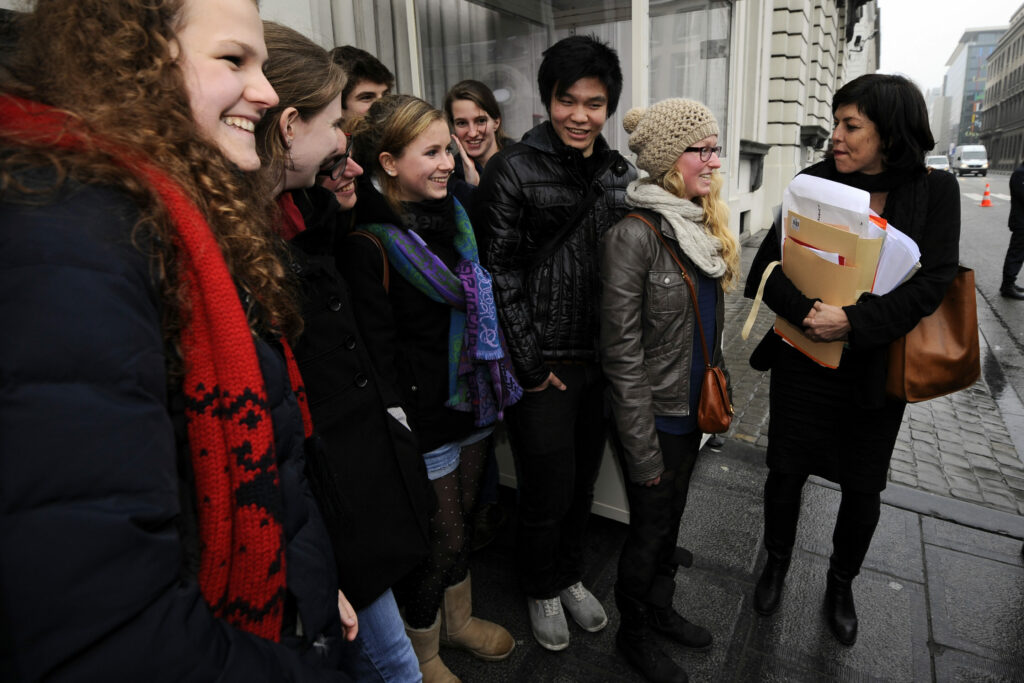
Group of secondary school pupils meeting former Interior Affairs Minister Joelle Milquet. Credit: Belga/Dirk Waem
Detention
Has anyone who completed their entire education in Belgium not ended up in detention? This reporter highly doubts it.
Even the most well-behaved pupils had to stay behind after class at least once in their time at school. Whether it was a teacher punishing the entire class for the misbehaviour of one student, being late three times or walking in the hallways unauthorised – detention was inevitable.
On one memorable occasion in a Limburg school, the entire sixth grade was even punished with detention. It may have had something to do with the mess they made during their 'Hundred Days School', but a certain reporter from The Brussels Times prefers to remain silent on this issue so as not to incriminate herself.

